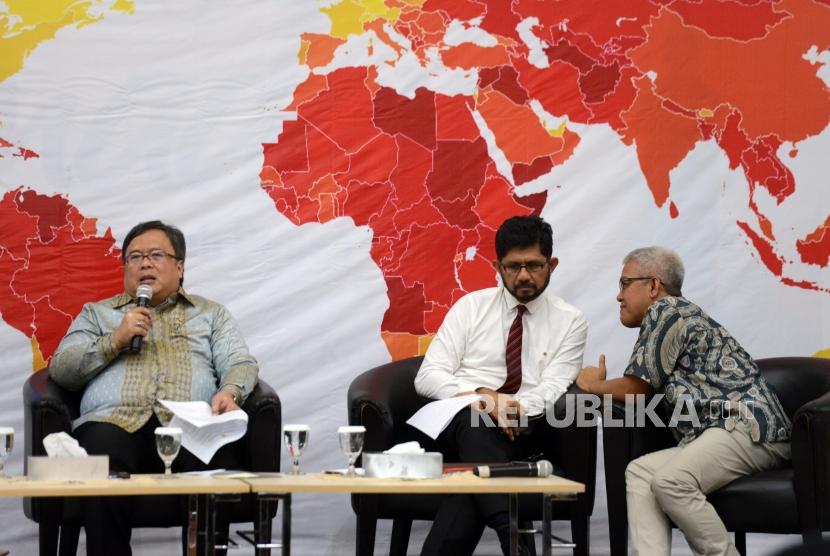REPUBLIKA.CO.ID, JAKARTA -- Toll roads are one of the sources of economic growth, National Development Planning Minister/National Development Planning Agency (Bappenas) Head Bambang Brodjonegoro stated. He explained that toll roads helped the smooth distribution of goods and services.
"I see toll roads as a source of economic growth. The presence of toll roads ensures smooth transportation and reduces logistic costs," he remarked after the launch of a policy book to support development of the infrastructure sector in Indonesia for the 2020-2024 period at the Bappenas building here on Friday.
To ensure smooth flow of goods, the country could not merely rely on arterial roads. Large trucks plying on arterial roads could easily cause damage to them, and the government had to spend a great deal of funds on repairing the damaged roads, he stated.
"Hence, the toll roads are intended to ensure the smooth flow of goods and people, and accordingly, the logistics costs could be lowered, and new economic activities will emerge," he noted.
Responding to complaints regarding the high toll tariffs for the Trans Java toll roads, he explained that toll road operators and users, particularly trucks, need to jointly calculate the tariffs and that they will not burden one of the sides.
"The most important aspect is that the toll road operators and users jointly calculate the tariffs. Are there tariffs or special tariffs applicable to trucks?" he noted.
In fact, the toll roads were built to ease the transportation of goods, he remarked.
Earlier, spokesman for Prabowo-Sandi pair's national campaign team Suhendra Ratu Prawiranegara said the toll tariffs in Indonesia are the highest in Southeast Asia, averaging Rp1,300 to Rp1,500 per kilometers, as compared to Rp778 per kilometer in Singapore, Rp492 per kilometer in Malaysia, Rp440 per kilometer in Thailand, Rp1,200 per kilometer in Vietnam, and Rp1,050 per kilometer in the Philippines.


